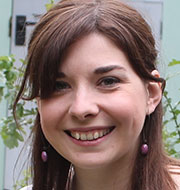Stepping into the role of a new consultant is exciting and comes with waves of doubt and elation. A few weeks into my new role these are my reflections.
You will continue to introduce yourself as a registrar automatically; on the phone; to families in clinic; on ward rounds; when dictating letters; to your medical director in a meeting. Then you will attempt to explain you are actually the consultant and try to continue to instil confidence, even when it sounds like you don’t know who you are.
Attending patients brings decision fatigue, and handover of the ward shares the same hazy post-nights euphoria you felt at the end of a string of shifts. Your team around you are really talented so let them help you. Learning to delegate and rely on others is essential. It is a tricky balance to support your junior team, but allow them to develop while you are also learning a new role. One of the quick changes I had to make was to stop saying that I personally would come back to every family, and start empowering the team by saying that one of the team would check on things later.
Your team are everything. A supportive group of colleagues is the most helpful thing. It’s the same advice for anyone in a new role—don’t be frightened to ask for help. The first week on call will have lots of new “surprises.” Everyone you know will tell you their first consultant shift nightmare stories before you start. Similar, I imagine, to people’s tendency to share birthing stories with pregnant women. It’s meant to show empathy and you really should take it that way—people want you to know you’re not alone. I was allocated a “buddy” for my first shifts who I could use as my go-to person, but the whole team made it clear they were on-hand to chat things through which really helped.
You will miss at least one meeting you didn’t know about, and you may even find yourself missing having a bleep! As a consultant you will likely move away from spending all your time clinically. Spending time in multidisciplinary team meetings, having telephone discussions and following up on results becomes the new norm. You are in control of much more of your time, this can be incredibly liberating, but feels somewhat odd after years of having priorities driven by a bleep.
An amazing thing happens that I didn’t expect—you actually get more time with patients and their families again. Instead of being so focussed on tasks and job lists when attending you get to spend time speaking to families. They may be more complex discussions, but there is space and time to do what you really started out wanting to do—listening to and hearing what matters to patients.
See also: Careers clinic—What do I need to do to become a consultant?
Top tips:
- Ask for help.
- Get your IT log ins and email signature set up quickly so that at least that has the correct details and you can contact and access everything you need.
- Give yourself space around on-call shifts to debrief with a friendly colleague. Ask for a mentor.
- Try different systems to track your follow up and clinic job lists until you find something that works for you – shamelessly steal ideas from others (excel sheets, workbooks, diary reminders).
- Try setting alarms to allow time to get to events in the day (safety huddles, meetings, family discussions)
- Set your out of office email up for leave, busy periods or study days – being a consultant seems to have increased emails 10-fold.
- Meet as many people in the first few weeks as you can throughout the organisation and be curious.
- Check out what support is available in your specialty and region for new or nearly new consultants.
 Emma Parish, General Paediatric Consultant at Guy’s and St Thomas’ NHS Foundation Trust.
Emma Parish, General Paediatric Consultant at Guy’s and St Thomas’ NHS Foundation Trust.
Competing interests: Emma Parish is a London regional Stepping Up Champion for RCPCH.
